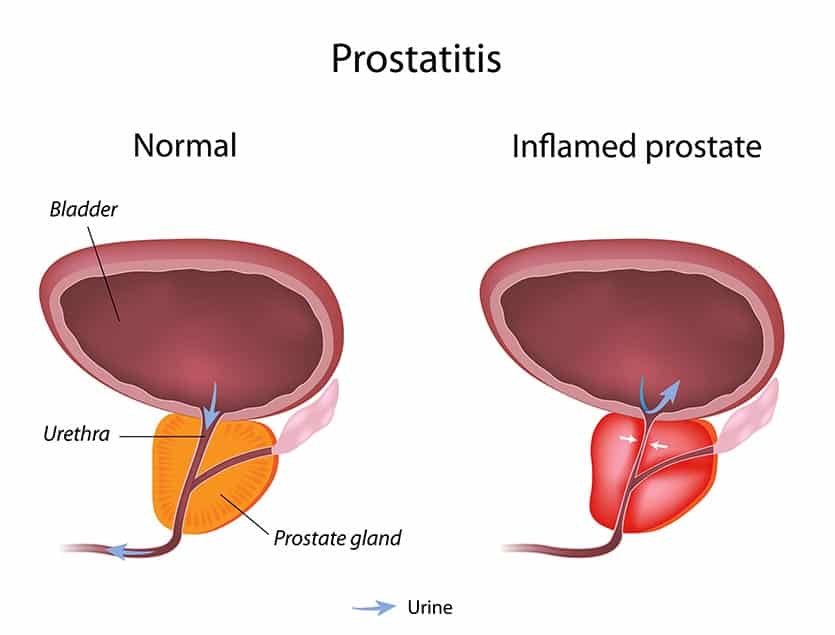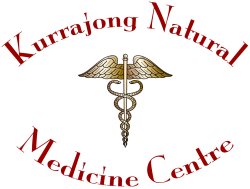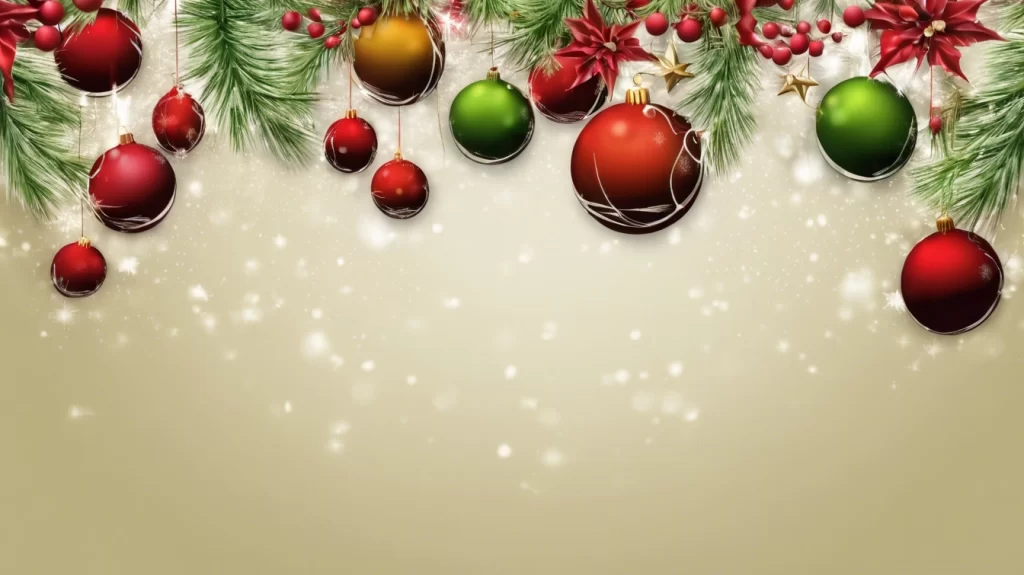Prostatitis/Chronic Pelvic Pain Syndrome (CP/CPPS)
The prostate gland is a small, walnut-sized gland that is part of the male reproductive system. It is located just below the bladder and surrounds the urethra, which is the tube that carries urine from the bladder out of the body.
The primary function of the prostate gland is to produce and secrete a fluid that makes up a significant portion of semen, the fluid that carries sperm during ejaculation. The prostate fluid helps nourish and protect the sperm, increasing their chances of successfully fertilizing an egg.
The prostate gland is composed of several types of cells, including glandular cells that produce the fluid, muscle cells that help expel the fluid during ejaculation, and fibrous tissue that provides structural support.
The size of the prostate gland tends to change with age. In young men, it is typically about the size of a walnut. However, it gradually grows larger as a man ages. In some cases, the prostate may enlarge to the point where it causes urinary symptoms, a condition known as benign prostatic hyperplasia (BPH).
What is Prostatitis/Chronic pelvic pain syndrome
Chronic prostatitis/chronic pelvic pain syndrome (CP/CPPS) is common afflicting approximately 2% to 10% of men younger than 50 years of age resulting in significant economic loss and reduced quality of life [1].
Prostatitis is swelling and inflammation of the prostate gland, a walnut-sized gland situated directly below the bladder in men. The prostate gland produces fluid (semen) that nourishes and transports sperm. Prostatitis often causes painful or difficult urination. Other symptoms include pain in the groin, pelvic area or genitals and sometimes flu-like symptoms.
CP/CPPS affects men of all ages but tends to be more common in men 50 or younger. The condition has a number of causes. Sometimes the cause isn’t identified. If prostatitis is caused by a bacterial infection, it can usually be treated with antibiotics.

Depending on the cause, prostatitis can come on gradually or suddenly. It might improve quickly, either on its own or with treatment. Some types of prostatitis last for months or keep recurring (chronic prostatitis) [2].
CP/CPPS is defined when pelvic pain is present for at least three of the preceding six months and no other identifiable causes have been detected [3]
Signs and symptoms depend on the cause. They can include:
- Pain or burning sensation when urinating (dysuria)
- Difficulty urinating, such as dribbling or hesitant urination
- Frequent urination, particularly at night (nocturia)
- Urgent need to urinate
- Cloudy urine
- Blood in the urine
- Pain in the abdomen, groin or lower back
- Pain in the area between the scrotum and rectum (perineum)
- Pain or discomfort of the penis or testicles
- Painful ejaculation
- Flu-like signs & symptoms (with bacterial prostate infection) [2]
How Does Traditional Chinese Medicine (TCM) view Prostatitis/chronic pelvic pain syndrome
Several studies have shown Acupuncture and Chinese herbal medicine to be very effective in treating Chronic Prostatitis/Chronic Pelvic pain Syndrome (CP/CPPS) [3,4,5].
In addition, Chinese herbal medicine has been widely used in clinical trials of CP/CPPS in recent years. TCM believes that the cause of CP/CPPS is mainly in the kidney [6,7]. Yin deficiency and heat, qi stagnation and blood stasis is its main pathogenic factor. Through the application of traditional Chinese medicine in the treatment of CP/CPPS’s unique diagnosis and treatment system, clinical efficacy is significant [8,9].
Modern research has shown that effective active ingredients in traditional Chinese medicine can improve the blood supply of peripheral blood vessels and achieve therapeutic purposes [10,11].
Traditional Chinese Medicine
Traditional Chinese Medicine (TCM) views prostate inflammation as a disorder related to the imbalances in the body’s energy, or Qi, and the interaction between the internal organs. In TCM theory, it is often considered to be associated with the imbalances of the Kidney and the Bladder meridians.
According to TCM, CP/CPPS is commonly caused by several factors:
Kidney Qi deficiency: The Kidney is regarded as the foundation of Qi and plays a vital role in maintaining reproductive health. Kidney Qi deficiency, often due to factors like aging, excessive sexual activity, or chronic illness, is considered a common underlying cause of CP/CPPS. The Kidney and Spleen organs play crucial roles in TCM theories related to reproductive health and pelvic disorders. Strengthening and tonifying the Kidney and Spleen Qi is often emphasised to address underlying deficiencies.
Damp-heat accumulation: Dampness and heat in the body can disrupt the normal functioning of the urinary system, leading to inflammation of the prostate. This can be caused by factors such as excessive consumption of spicy and greasy foods, prolonged sitting, and poor lifestyle habits.
Blood stasis: Stagnation of blood circulation in the pelvic area can contribute to the development of prostatitis. This may be caused by factors such as physical trauma, chronic inflammation, or excessive sexual activity. TCM aims to promote the smooth flow of Qi and blood circulation to reduce pain, inflammation, and congestion in the prostate and pelvic region. Acupuncture, herbal medicine, and certain lifestyle modifications are commonly used for this purpose.
In TCM, the treatment of prostatitis focuses on restoring the balance of Qi and addressing the underlying imbalances. This is typically achieved through a combination of acupuncture, herbal medicine, dietary adjustments, and lifestyle modifications. Here are some common approaches used in TCM for prostatitis:
Acupuncture: Fine needles are inserted at specific points along the meridians to stimulate and regulate the flow of Qi, promote blood circulation, and reduce inflammation in the prostate.
Herbal medicine: Chinese herbal formulas are prescribed to address the specific pattern of disharmony. These formulas often include herbs with properties that tonify Kidney Qi, clear dampness and heat, and promote blood circulation.
Dietary adjustments: TCM practitioners may recommend dietary modifications to support the treatment of an inflammed prostate gland. This may involve reducing spicy, greasy, and processed foods, increasing the intake of foods that nourish the Kidney, and promoting urination, such as watermelon, celery, and pumpkin seeds.
Lifestyle modifications: TCM emphasizes the importance of a balanced lifestyle. This includes managing stress, getting regular exercise, maintaining proper hygiene, and avoiding excessive sexual activity.
It’s important to note that TCM approaches are based on individualised diagnoses and treatments. If you’re considering TCM for prostatitis, it’s advisable to consult with a qualified TCM practitioner who can assess your specific condition and develop a personalised treatment plan.
Both Acupuncture and Chinese herbal medicine are useful tools by them selves but work even more effectively when used together.
At Kurrajong Natural Medicine Centre our highly qualified and experienced team of practitioners are happy to develop a personalised treatment programme with you. Simply call (02)4573 0784
What You Can Do to Help Yourself
There are several self-care measures that can help manage prostate issues:
Drinking plenty of water: Staying hydrated can help flush bacteria and toxins from the urinary system, promoting healing.
Avoiding irritants: Caffeine, alcohol, spicy foods, and acidic foods or drinks may irritate the bladder and worsen symptoms. It can be helpful to identify and avoid any specific triggers.
Applying heat: Applying a warm compress or sitting in a warm bath can help alleviate pelvic pain and relax the muscles.
Regular bladder emptying: Frequent urination can prevent urine from pooling in the prostate, which may exacerbate symptoms. Avoid delaying urination and make sure to fully empty your bladder.
Physical activity and stress management: Engaging in regular exercise can promote blood circulation and help relax the pelvic muscles. Additionally, managing stress through techniques like deep breathing, meditation, or therapy can potentially reduce symptom severity.
Remember, inflammation of the prostate gland is a complex condition, and the appropriate treatment may vary depending on the type, severity, and underlying cause. It’s essential to consult with a qualified and experienced healthcare professional to receive an accurate diagnosis and personalised treatment plan that suits your specific needs.
References
- Lee, S. W., Liong, M. L., Yuen, K. H., & Krieger, J. N. (2014). Acupuncture and immune function in chronic prostatitis/chronic pelvic pain syndrome: a randomized, controlled study. Complementary therapies in medicine, 22(6), 965–969. https://doi.org/10.1016/j.ctim.2014.10.010
- Mayo Clinic. Insomnia. URL: https://www.mayoclinic.org/diseases-conditions/prostatitis/symptoms-causes/syc-20355766. Last visited 6th Aug. 2021
- Chang, S. C., Hsu, C. H., Hsu, C. K., Yang, S. S., & Chang, S. J. (2017). The efficacy of acupuncture in managing patients with chronic prostatitis/chronic pelvic pain syndrome: A systemic review and meta-analysis. Neurourology and urodynamics, 36(2), 474–481. https://doi.org/10.1002/nau.22958
- Franco JVA, Turk T, Jung JH, Xiao YT, Iakhno S, Garrote V, Vietto V. Non-pharmacological interventions for treating chronic prostatitis/chronic pelvic pain syndrome. Cochrane Database of Systematic Reviews 2018, Issue 5. Art. No.: CD012551. https://doi.org/10.1002/14651858.CD012551.pub3
- Xue, Y., Duan, Y., Gong, X., Zheng, W., & Li, Y. (2019). Traditional Chinese medicine on treating CP/CPPS: A systematic review and meta-analysis. Medicine, 98(26), e16136. https://doi.org/10.1097/MD.0000000000016136
- Lee SW, Liong ML, Yuen KH, et al. Acupuncture versus sham acupuncture for chronic prostatitis/chronic pelvic pain. Am J Med2008;121:79.e1–7.
- Ohlsen BA. Acupuncture and Traditional Chinese Medicine for the management of a 35-year-old man with chronic prostatitis with chronic pelvic pain syndrome. J Chiropr Med 2013;12:182–90.
- Lee SH, Lee BC. Use of acupuncture as a treatment method for chronic prostatitis/chronic pelvic pain syndromes. Curr Urol Rep 2011;12:288–96.
- Ji Tao. Application of Acupuncture and Moxibustion for (CP/CPPS). 2016; Second Military Medical University.
- Antolak SJ. Acupuncture ameliorates symptoms in men with chronic CP/CPPS. Urology 2004;63:212.
- Liddle CE, Harris RE. Cellular reorganization plays a vital role in acupuncture analgesia. Med Acupunct 2018;30:15–20.
Disclaimer
Disclaimer information for users of the Kurrajong Natural Medicine Centre website.
Page last updated: 24th June 2021
THE INFORMATION PROVIDED IN ANY OF THE ARTICLES PUBLISHED ON THIS SITE IS FOR EDUCATION AND INFORMATION PURPOSES ONLY.
NO CLAIMS ARE MADE AS TO THE EFFECTIVENESS OF ANY OF THE TREATMENTS USING ACUPUNCTURE OR THAT THIS THERAPY IS SUITABLE FOR THE READER.
THE SOURCES OF ALL THE ARTICLES ARE LISTED AND COME FROM REPUTABLE PEER-REVIEWED SCIENTIFIC JOURNALS. WHERE POSSIBLE LINKS TO THE ORIGINAL SOURCE ARE PROVIDED FOR THE READER TO FOLLOW.
Articles published on this page are not intended to provide diagnosis, treatment or medical advice. Content provided on this page is for informational purposes only. Please consult with a physician or other healthcare professional regarding any medical or health related diagnosis or treatment options. Information on this page should not be considered as a substitute for advice from a healthcare professional. The claims made about specific products throughout this article are not approved to diagnose, treat, cure or prevent disease.
Information provided for education and research information only
The information on this website is presented by Kurrajong Natural Medicine Centre for the purpose of disseminating health information free of charge for the benefit of the public.
While Kurrajong Natural Medicine Centre has exercised due care in ensuring the accuracy of the material contained on this website, the information on the site is made available on the basis that Kurrajong Natural Medicine Centre is not providing professional advice on a particular matter.
This website is not a substitute for independent professional advice. Nothing contained in this site is intended to be used as medical advice and it is not intended to be used to diagnose, treat, cure or prevent any disease, nor should it be used for therapeutic purposes or as a substitute for your own health professional’s advice.
Kurrajong Natural Medicine Centre does not accept any liability for any injury, loss or damage incurred by use of or reliance on the information provided on this website.
Quality of information
Kurrajong Natural Medicine Centre makes every effort to ensure the quality of the information available on this website and updates the information regularly. Before relying on the information on this site, however, users should carefully evaluate its accuracy, currency, completeness and relevance for their purposes, and should obtain any appropriate professional advice relevant to their particular circumstances. Kurrajong Natural Medicine Centre cannot guarantee and assumes no legal liability or responsibility for the accuracy, currency, completeness or interpretation of the information.
The material may include the views or recommendations of third parties and does not necessarily reflect the views of Kurrajong Natural Medicine Centre or indicate a commitment to a particular course of action.
Links to other websites
This website contains links to other websites which are external to Kurrajong Natural Medicine Centre. Kurrajong Natural Medicine Centre takes reasonable care in selecting linking websites but Kurrajong Natural Medicine Centre accepts no responsibility for material contained in a website that is linked to this site. It is the responsibility of the user to make their own decisions about the accuracy, currency, reliability and correctness of information contained in linked external websites.
Links to external websites are provided for the user’s convenience and do not constitute an endorsement or a recommendation of any third party products or services offered by virtue of any information, material or content linked from or to this site. Users of links provided by this site are responsible for being aware of which organisation is hosting the site they visit.
Views or recommendations provided in linked sites may include the views or recommendations of third parties and do not necessarily reflect those of Kurrajong Natural Medicine Centre or indicate a commitment to a particular course of action. .



